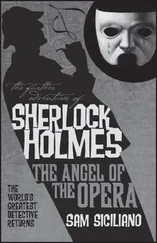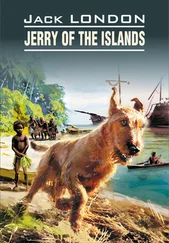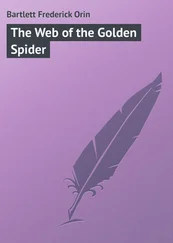Ahern, Jerry - The Web
Здесь есть возможность читать онлайн «Ahern, Jerry - The Web» весь текст электронной книги совершенно бесплатно (целиком полную версию без сокращений). В некоторых случаях можно слушать аудио, скачать через торрент в формате fb2 и присутствует краткое содержание. Жанр: Старинная литература, на английском языке. Описание произведения, (предисловие) а так же отзывы посетителей доступны на портале библиотеки ЛибКат.
- Название:The Web
- Автор:
- Жанр:
- Год:неизвестен
- ISBN:нет данных
- Рейтинг книги:4 / 5. Голосов: 1
-
Избранное:Добавить в избранное
- Отзывы:
-
Ваша оценка:
- 80
- 1
- 2
- 3
- 4
- 5
The Web: краткое содержание, описание и аннотация
Предлагаем к чтению аннотацию, описание, краткое содержание или предисловие (зависит от того, что написал сам автор книги «The Web»). Если вы не нашли необходимую информацию о книге — напишите в комментариях, мы постараемся отыскать её.
The Web — читать онлайн бесплатно полную книгу (весь текст) целиком
Ниже представлен текст книги, разбитый по страницам. Система сохранения места последней прочитанной страницы, позволяет с удобством читать онлайн бесплатно книгу «The Web», без необходимости каждый раз заново искать на чём Вы остановились. Поставьте закладку, и сможете в любой момент перейти на страницу, на которой закончили чтение.
Интервал:
Закладка:
hovering low, too low over the road where it widened. He could see uniformed troopers in the massive open doors of the formerly U.S. machine.
He heard the Russian voice again on the loudspeaker. "Paul Rubenstein.
This is by order of General Varakov; you are to stop immediately and lay down your arms."
Rubenstein spotted what Rourke had told him once was a deer trail; it looked the same. He wrenched the bike into a hard left, onto the deer trail, the branches cracking against his face and body as he forced the machine through. The path was bumpier than the dirt road he had just left.
"Paul Rubenstein . . . you are ordered to—"
He looked up, cursing under his breath, then looked ahead of him. A deadfall tree lay across the path. He started to brake, and the Harley skidded from under him. Rubenstein threw himself clear, hitting the ground hard.
He pushed himself to his feet, the Harley lost somewhere in the trees. He started to run, snatching at the battered High Power under his jacket. He stopped at the tree line, snapping off two fast shots toward the nearest helicopter; the machine backed off. He had lost sight of the other one after heading onto the deer path.
Machine-gun fire was coming at him, hammering into the ground and the trees ten yards behind him as he ran, swatting away the tree branches that snapped at his face. Pine boughs still laden with snow pelted him, washing wet snow across his face. The machine-gun fire was edging closer and he dropped to his knees, wheeling, firing the High Power in rapid, two-shot semiautomatic bursts.
The helicopter backed off.
"Son of a gun." He smiled, pushing himself to his feet,
turning to run again.
Three Russian soldiers blocked the path. The other helicopter, he realized, had landed its men.
Rubenstein started to bring the pistol on line to fire, but something hammered at the back of his neck and he fell forward, the gun dropping from his grip.
Hands reached down to him; voices spoke to him in Russian. Rubenstein rolled onto his back, his left foot snapping up and out, into the crotch of one of the Russians; the man doubled over.
Rubenstein reached up, snatching hold of a fistful of uniform, hauling himself up to his knees as he dragged the soldier down, his left fist smashing upward, into the face. Then he was on his feet, running. Someone tackled him; he went down, the ground slapping hard against him.
Another man was on top of him, holding him. Rubenstein snapped his left elbow back, found something hard against it, and heard a moan and what sounded like a curse despite the language barrier.
He pushed himself up, wheeling, his left swinging out, catching the tip of a chin. A man. fell back under his blow.
Rubenstein wheeled again. He saw the two bunched-together fists swinging toward him like a baseball bat, felt the pain against the side of his neck, then there was nothing but darkness and a warm feeling.
John Rourke squinted against the light, his belly aching, a sudden stabbing pain in his left upper arm. The pain was familiar—the arm aching like a bad tooth. He moved that arm, but it wouldn't move well. And when he opened his eyes, his vision was blurred. His other limbs didn't work when he told them to. He fell, feeling something tight around bis neck, choking him, feeling bands on his shoulders, moving him.
A voice. "John . . . John. I told you the last time, don't try to stand up. You can't walk; don't you know that by now? Thanksgiving's almost past. I'm sorry I couldn't give you any turkey; you've been throwing up everything I give you. But tomorrow's Christmas and then it'll all be over."
Rourke shook his head, murmuring, "I like turkey— Thanksgi— Christmas?"
"I'll help you onto the cot." Above him a woman's face smiled.
"Strong," he muttered, feeling her hands under his armpits. He wanted to help her, very badly because the floor was cold under him. Naked? His hands—he squinted to look at them. Tied together. So were his
ankles. The thing around his neck choked him again.
"Vm sorry, John. That rope around your neck—it got caught on the edge of the cot. I'll fix it." The pressure around his neck subsided.
"Thanks—Martha," he murmured. Martha? Martha Bogen? "Coffee," he shouted, his own voice sounding odd to him, his tongue feeling dry and thick and hot.
"Yes. You asked the same question the last two times I gave you an injection. I drugged the coffee with chloral hydrates—I just had to give you so much of it it made you sick. And I gave myself an apomo.rphine shot after I drank the first cup. I just threw it up. So it didn't bother me. I just made myself throw up. You are very forgetful, John." The voice cooed, good-naturedly.
"Sor—" Why was he sorry? he wondered. Because he was forgetful? He couldn't remember why he was sorry.
There was another needle plunged into his arm, and the pain was there again.
Why was she giving him two shots? He tried to think— if he could think.
The nausea—from the chloral hydrate she had said. But not the shots. "Not the shots," he verbalized.
"It'll be all right, John. I'll give you the antidote and when I do in thirty seconds you'll be just fine—honestly. And then we can hold each other's hands maybe and watch when the fireworks start and the mountains start to crash down on us. We'll die together. Neither one of us will ever be alone again, John." He saw her face; it looked distorted to him, like something seen through a tube with the lighting wrong. She was smiling.
"I still have all my husband's drugs, John, so I can bring you out of this very easily when it's time. Just a day
or so, really. You'll just feel like you're very drunk and it won't bother you. It hasn't. And then when I give you the antidote you'll be your old self again."
She kissed him on the cheek; he could feel it. He tried moving his arms, but they wouldn't move.
"Now, John," she said with what sounded like a mother's severity to him.
"Even if you should get yourself untied, it won't do you any good. With what I've given you, you can't walk and you can't really think too well.
You're locked in the library basement and I've taken your clothes and those guns of yours. I'll be back in a few hours with another set of shots. Maybe we can get some good soup or something into you after it all wears off. But I think if I fed you now, well, you'd just get all sick again."
He felt her kiss his cheek again, and then she disappeared from his line of sight.
He heard a door open, shut, and the sound of a key in a lock.
There was nothing else to do, he thought, so he started to move his shoulders and his hips. He kept moving them, throwing his weight to his right; then he rolled.
The basement floor slapped hard against his body and the side of his face.
The pain—it cleared his head. He rolled with much effort, twisting his body and throwing his weight, onto his back. He tried to move his legs; they wouldn't move. He squinted against the light, looking at the ropes on his hands. Ordinary rope—clothesline, he thought. He tried tugging against the rope; his arms didn't respond.
"Muscle relaxant—curare deriv—" He felt the nausea welling up inside him and leaned back his head, staring at
the ceiling. He looked behind him, awkwardly. An end of the clothesline snaked across the floor and was tied to a support post for the basement ceiling. When he moved his head, the rope moved a little; it was the rope that had him tethered by the neck.
Muscle relaxant, he thought. If she didn't know how to administer it, he would stop breathing, just die. She was only giving him enough so that it would wear off every few hours.
The swimming feeling in his head—the nausea, the cold . . . The muscle relaxant wouldn't make him, like she had said, "drunk." He closed his eyes a minute against the feelings. . . .
Читать дальшеИнтервал:
Закладка:
Похожие книги на «The Web»
Представляем Вашему вниманию похожие книги на «The Web» списком для выбора. Мы отобрали схожую по названию и смыслу литературу в надежде предоставить читателям больше вариантов отыскать новые, интересные, ещё непрочитанные произведения.
Обсуждение, отзывы о книге «The Web» и просто собственные мнения читателей. Оставьте ваши комментарии, напишите, что Вы думаете о произведении, его смысле или главных героях. Укажите что конкретно понравилось, а что нет, и почему Вы так считаете.







